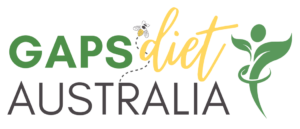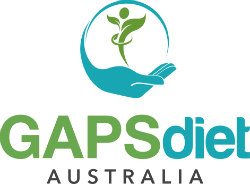Foods to Avoid
• Sugar and anything that contains it.
• Molasses, maple syrup, corn syrup, any other syrup.
• Aspartame in any form, it is a potent neurotoxin (brain toxin).
• Sweets, cakes, biscuits, chocolates, ice – creams.
• All alcoholic beverages. An adult can have good quality wine with meals occasionally but not beer or spirits.
•Tinned and processed foods, always read the ingredients label, beware of sugar, lactose, maltose, starch, corn flour, preservatives, flavourings, colours, yeast. It is best not to buy processed foods at all.
• Grains: rice, corn, rye, oats, wheat and anything made of wheat flour (breads, pasta, biscuits, cakes and anything from the bakery, anything with bread crumbs or batter), buckwheat, quinoa, millet, couscous, spelt, semolina, tapioca, etc. After about 1 – 1.5 years you may be able to slowly re-introduce buckwheat, millet and quinoa (fermented to start with), but not wheat, rye or rice.
• Breakfast cereals are highly processed products with virtually no nutritional value, they are full of sugar, salt, trans-fatty acids and other harmful substances. They should be out of the diet forever.
• Starchy vegetables and anything made out of them: potato, parsnips, yams, Jerusalem artichoke and sweet potato. In about 1 – 1.5 years you may be able to introduce new potatoes.
• Milk should be out at this stage. However, the GAPS person can have soured milk products, such as natural hard cheese, live natural yoghurt and kefir, crème fresh or soured cream, butter and ghee. There are many substances in milk, which could cause trouble, such as milk sugar lactose, casein, immune complexes, etc. Soured milk products do not contain lactose and are pre-digested by the fermenting microbes, which makes fermented milk products very easy to digest for us. I would recommend using only organic milk products and introduce them one at a time, starting from small amounts. If you were not able to introduce any dairy in the Introduction Diet, then please look at page 95 in the GAPS book, it will explain how to introduce dairy safely. If you have introduced homemade yoghurt, kefir and ghee as a part of the Introduction Diet, then gradually introduce fermented cream and butter. When that is well tolerated try natural mature cheeses. You may want to try goat’s or sheep’s milk products first as they are often better tolerated by the GAPS people, than cow’s. In about 1,5 -2,5 years and when all fermented dairy products are introduced, your patient may be able to drink raw unpasteurised organic milk. Introduce it gradually starting from 1-2 teaspoons a day. A GAPS person must never have pasteurised milk!
• Fruit juices apart from freshly pressed. Unfortunately fruit juices (not freshly pressed by you) are a source of processed sugars and can contain a lot of fungi and moulds in them, which your GAPS patient might react to.
• Beans and pulses are generally hard to digest. The two varieties that your patient can have are white (navy) beans also called haricot beans, fermented and cooked at home, and fresh green beans. Commercially available baked beans have almost 40% sugar and should be avoided. You can make your own baked beans at home (please, look in the recipe section).
• Coffee is a strong irritant for the digestive tract, try to avoid it. Strong tea is not advisable either. Natural herbal teas (no flavourings added) and ginger tea are fine. Ginger tea is a well-known folk remedy for digestive problems.
• Soft drinks are not allowed at all, they are full of sugar and various chemicals, which are very damaging for GAPS people.
• Anything with colours, preservatives, flavourings and other chemicals.
• Soya and anything made out of it. It interferes with thyroid function in the body and negatively affects hormonal balance, as it contains oestrogen – like compounds. It is important to avoid all synthetic oestogens, such as from soya, contraceptive pill, many other drugs, domestic cleaning chemicals, laundry detergents, toiletries, etc.


